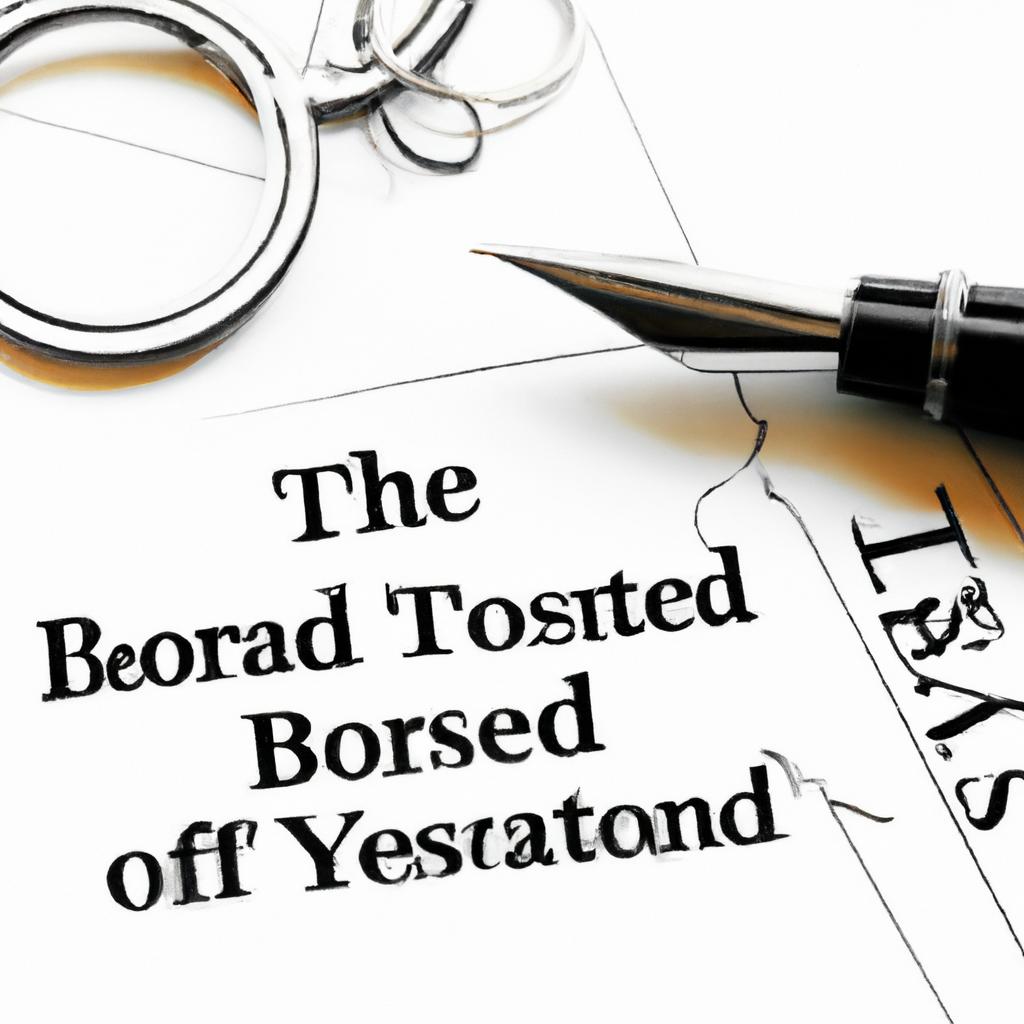When it comes to securing the future of your assets and loved ones, one crucial aspect that cannot be overlooked is estate bonding. At Morgan Legal Group, we understand the complexities and nuances involved in navigating the intricacies of estate planning, probate, elder law, Wills, and trusts. With our expertise and dedication to providing top-notch legal services in New York City, we are committed to ensuring that your estate is properly bonded to safeguard against any unforeseen circumstances. In this article, we delve into the essentials of estate bonding and how it can benefit you and your family in the long run.
Understanding the Importance of Estate Bonding in Estate Planning
When it comes to estate planning, one crucial aspect that is often overlooked is estate bonding. Estate bonding ensures that the estate executor, trustee, or any other individual handling a deceased person’s assets is held accountable and acts in the best interest of the estate beneficiaries. Without estate bonding, there is a risk of mismanagement, fraud, or other misconduct that could jeopardize the estate.
Having estate bonding in place provides peace of mind for the estate beneficiaries, knowing that their loved one’s assets are protected and will be distributed according to their wishes. In the event of any wrongdoing or negligence on the part of the estate executor or trustee, the bonding company will step in to cover any losses suffered by the estate. This added layer of protection is essential in ensuring a smooth and fair distribution of assets, minimizing conflicts and disputes among family members.

Key Considerations for Choosing the Right Estate Bond
When it comes to choosing the right estate bond, there are several key considerations that individuals should keep in mind. One of the most important factors to consider is the financial stability and reputation of the bonding company. It is essential to choose a company with a strong financial backing and a history of reliability to ensure that your estate will be properly protected.
Another crucial consideration is the terms and conditions of the bond. Individuals should carefully review the terms of the bond to ensure that it meets their specific needs and requirements. This includes understanding the coverage limits, premium costs, and any exclusions or limitations that may apply. By thoroughly evaluating these factors, individuals can make an informed decision and select the right estate bond for their unique situation.

Ensuring Proper Execution and Administration of Estate Bonds
When it comes to estate planning, the proper execution and administration of estate bonds is essential to ensure that your assets are protected and distributed according to your wishes. Estate bonds serve as a financial guarantee that the executor of your estate will carry out their duties faithfully and ethically. It is crucial to understand the importance of estate bonding and the steps involved in the process to avoid any potential complications.
At Morgan Legal Group, we specialize in estate planning and have years of experience in assisting clients with the proper execution and administration of estate bonds. Our team of experienced attorneys will guide you through the legal requirements and help you navigate the complexities of estate bonding to ensure that your assets are protected and distributed according to your wishes. Trust us to provide you with the personalized attention and expertise you need to secure the future of your estate.

Maximizing Benefits and Minimizing Risks with Strategic Estate Bonding Strategies
When it comes to estate planning, maximizing benefits and minimizing risks are essential components of a successful strategy. Strategic estate bonding strategies can help individuals ensure that their assets are protected and distributed according to their wishes. By carefully planning and structuring estate bonds, individuals can create a framework that not only maximizes tax benefits but also provides security for their loved ones.
One key benefit of strategic estate bonding is the ability to reduce the overall tax burden on an estate. By utilizing tools such as trusts and gifting strategies, individuals can minimize the impact of estate taxes and ensure that more of their assets are passed on to their beneficiaries. Additionally, strategic estate bonding can help protect assets from creditors and other potential risks, providing peace of mind for the individual and their family. Overall, estate bonding is a powerful tool that can help individuals achieve their estate planning goals while minimizing potential risks.
Q&A
Q: What is estate bonding and why is it important?
A: Estate bonding is a type of insurance that protects against financial losses resulting from fraud or theft by estate administrators. It is important because it provides assurance to beneficiaries that their assets are safe and will be distributed according to the terms of the estate.
Q: How does estate bonding work?
A: Estate bonding works by providing coverage for losses that occur as a result of dishonest or negligent actions by the estate administrator. If a beneficiary believes that the estate administrator has acted unlawfully, they can make a claim against the bond to recoup their losses.
Q: Who typically purchases estate bonding?
A: Estate bonding is typically purchased by individuals who are appointed as estate administrators or trustees. This includes professionals such as lawyers, accountants, and financial advisors, as well as family members or friends who are named as executors of an estate.
Q: What factors should be considered when selecting an estate bonding provider?
A: When selecting an estate bonding provider, it is important to consider the financial strength of the insurer, the terms and conditions of the policy, and the reputation of the company. It is also recommended to compare quotes from multiple providers to ensure you are getting the best coverage at the most competitive rate.
Q: Are there any alternatives to estate bonding?
A: While estate bonding is the most common form of protection against fraud or theft by estate administrators, there are alternative options available. These include requiring the administrator to obtain a fidelity bond, obtaining a surety bond, or implementing additional safeguards such as regular audits or oversight by a third-party trustee.
To Conclude
In conclusion, estate bonding plays a crucial role in ensuring that the assets and properties of an estate are protected and preserved for future generations. By providing a financial security net, estate bonding offers peace of mind to heirs and beneficiaries, knowing that their inheritance is in safe hands. Whether you are a trustee, executor, or administrator, estate bonding can provide the necessary protection and assurance needed to navigate the complexities of estate management. So, next time you find yourself tasked with overseeing an estate, consider the benefits of estate bonding and make sure to secure the legacy of your loved ones.


